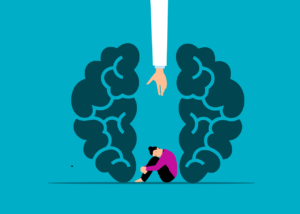Do you find yourself feeling exhausted all the time, no matter how much sleep you get? If you're always tired, there could be a variety of reasons why you're feeling this way. In this blog post, we will explore 10 possible reasons why someone might always be tired and provide some tips on how to combat this issue.
1. Inadequate Sleep Quality
A primary reason for constant fatigue may stem from not getting enough restful sleep. Securing the recommended 7-9 hours is essential, but the quality of that sleep is equally important. Various factors can undermine sleep quality, such as exposure to noise disturbances, utilizing an uncomfortable mattress or pillow, or adhering to an inconsistent sleep schedule.
These issues can prevent deep, restorative sleep cycles, leading to waking up feeling unrefreshed and lethargic. Addressing these sleep disruptors by creating a tranquil and comfortable sleep environment and maintaining a consistent sleep routine can significantly improve sleep quality and, by extension, daily energy levels.
2. High Stress Levels
Navigating through life's daily pressures can often leave you feeling overwhelmed and exhausted. The continuous presence of stress takes a toll on the body, leading to an excess production of cortisol. This imbalance can interfere with your ability to achieve restful sleep, perpetuating a cycle of fatigue. To break free from this pattern, identifying stress-reducing activities is vital.
Techniques such as deep breathing exercises, yoga, or even short daily walks can significantly alleviate stress. Additionally, setting aside time for hobbies or interests that bring you joy can also serve as an effective counterbalance to stress. Integrating these practices into your routine not only helps in managing stress levels but also in rejuvenating your energy throughout the day.
3. Poor Diet
Eating habits heavily influence energy levels throughout the day. A diet high in processed foods and sugars can lead to quick spikes in energy followed by sharp declines, leaving you feeling more fatigued.
Conversely, a lack of nutrient-rich foods such as fruits, vegetables, and whole grains deprives your body of the essential vitamins and minerals it needs for sustained energy. Incorporating a variety of these foods into your meals can ensure your body receives the necessary nutrients to maintain optimal energy levels.
Additionally, balancing protein, fats, and carbohydrates can help stabilize blood sugar levels, preventing the midday slump many experience. Paying attention to your body's response to certain foods and adjusting your diet accordingly can also play a significant role in managing your energy levels.
4. Insufficient Exercise
Inactivity could paradoxically be draining your energy reserves. Engaging in regular physical activity is fundamental to enhancing stamina, enriching sleep quality, and invigorating overall well-being. When your lifestyle doesn't include sufficient movement, your body might not be stimulated enough to signal tiredness at bedtime, complicating your ability to fall asleep.
Starting with moderate exercises, such as brisk walking, cycling, or swimming, can initiate a positive cycle, where increased energy levels enable more activity, which in turn boosts those levels even further. Exercise also plays a critical role in stress reduction, which, as previously discussed, can affect your sleep and energy. The key is to find a balance that fits your lifestyle and preferences, ensuring that exercise acts as a source of rejuvenation rather than exhaustion.
Encouraging your body to adapt to a more active routine could be the catalyst needed to break the cycle of perpetual fatigue.
5. Dehydration
Dehydration can subtly yet significantly sap your energy, leading to a feeling of being always tired. When the body lacks sufficient fluids, it affects every cell and system, making basic processes more laborious and energy-consuming. This state of fluid deficiency means your heart must exert more effort to pump blood, which can slow down the delivery of oxygen and nutrients vital for energy. Often overlooked, regular hydration is an easy yet effective way to enhance your energy levels.
Water is crucial for optimal brain function and muscle efficiency, both of which play a significant role in how energetic you feel throughout the day. Ensuring you drink adequate amounts of water, especially before, during, and after exercise, and also if you consume diuretics like caffeine, can help keep your energy consistent. Remember, feelings of thirst can often be mistaken for hunger or fatigue, so reaching for a glass of water might be the simplest solution to combat tiredness.
6. Medical Conditions
Several underlying health issues can be at the root of unrelenting tiredness. Conditions such as anemia, which involves a deficiency of red blood cells, can impair the oxygen supply to your body's tissues, resulting in persistent fatigue. Similarly, hypothyroidism, characterized by an underactive thyroid gland, can drastically slow down your metabolism, leaving you feeling exhausted. Sleep disorders, like sleep apnea, disrupt the quality of your sleep by causing frequent awakenings throughout the night, preventing you from reaching deep, restful stages of sleep. These conditions are not always immediately recognizable, and their symptoms can easily be mistaken for mere tiredness. It's essential to pay attention to additional symptoms that accompany fatigue, such as unexplained weight changes, feelings of coldness, or irregular breathing patterns during sleep. Consulting a healthcare professional can help uncover any underlying conditions through proper diagnosis and treatment plans, addressing the root cause of your fatigue and helping restore your energy levels.
7. Mental Health Issues
Mental health conditions such as depression and anxiety have profound impacts on one’s energy levels, often contributing to a state of constant tiredness. These disorders can significantly alter sleep patterns, making it difficult to fall asleep or stay asleep through the night. The resulting poor sleep quality can exacerbate feelings of fatigue during the day.
Additionally, the emotional and psychological strain of managing these conditions requires a substantial amount of mental energy, which can deplete physical reserves even further. It's important to acknowledge the role mental health plays in overall well-being and seek appropriate support. Engaging with a mental health professional through therapy or counseling can offer strategies to manage these conditions effectively. Addressing mental health concerns not only aids in improving sleep and reducing tiredness but also enhances quality of life.
8. Overconsumption of Caffeine
Many people turn to caffeine as a quick fix for boosting energy, but relying heavily on it can backfire, resulting in heightened fatigue over time. Excessive caffeine intake can interfere with normal sleep cycles, making it challenging to achieve deep, restorative sleep.
This disruption can lead to a cycle where you're dependent on caffeine to compensate for the lack of energy, only to find that it further impairs your sleep quality. Additionally, the body can develop a tolerance to caffeine, diminishing its initial energizing effects and necessitating higher consumption to achieve the same alertness.
This cycle of dependency and tolerance can exacerbate feelings of tiredness. To mitigate these effects, it's advisable to moderate your caffeine consumption and explore alternative methods to boost your energy, such as incorporating short, energizing walks or brief naps into your routine. Balancing caffeine intake can help maintain its benefits without compromising your sleep and energy levels in the long term.
9. Poor Sleep Hygiene
Engaging in behaviors that negatively impact the quality of your sleep can lead to chronic tiredness. Factors such as scrolling through social media on your phone or tablet right before bed can hinder your brain's ability to transition into sleep mode due to the blue light emitted by these devices. Additionally, an environment that is not conducive to sleep, such as a bedroom that is too loud or illuminated, can prevent you from falling asleep quickly and deeply.
Consuming stimulants like caffeine or heavy meals too close to bedtime can also disrupt your sleep cycle, making it difficult to enjoy uninterrupted rest. To enhance your sleep hygiene, consider establishing a pre-sleep ritual that helps signal to your body that it's time to wind down. This might include reading a book, taking a warm bath, or practicing relaxation techniques. Ensuring your bedroom is optimized for sleep, by keeping it cool, dark, and quiet, can further promote a restful night's sleep, helping to alleviate the persistent feeling of being always tired.
10. Lack of Sunlight Exposure
Exposure to sunlight is vital in maintaining our circadian rhythm, which helps regulate sleep patterns and mood. A deficiency in natural light can lead to disrupted sleep schedules and a decrease in serotonin levels, contributing to feelings of fatigue. Additionally, sunlight is a natural source of vitamin D, a nutrient crucial for energy metabolism and muscle function.
People who spend extensive periods indoors or reside in areas with long winters may find themselves more susceptible to feeling persistently tired due to reduced sunlight exposure. To counteract this, try to make a conscious effort to step outside during daylight hours, even for short periods. If natural sunlight is scarce, particularly in the winter months, consider using a light therapy box, which mimics natural light and can help maintain your body's internal clock and improve your mood and energy levels. Simple adjustments to your daily routine to include more natural light exposure can make a significant difference in combating tiredness.






